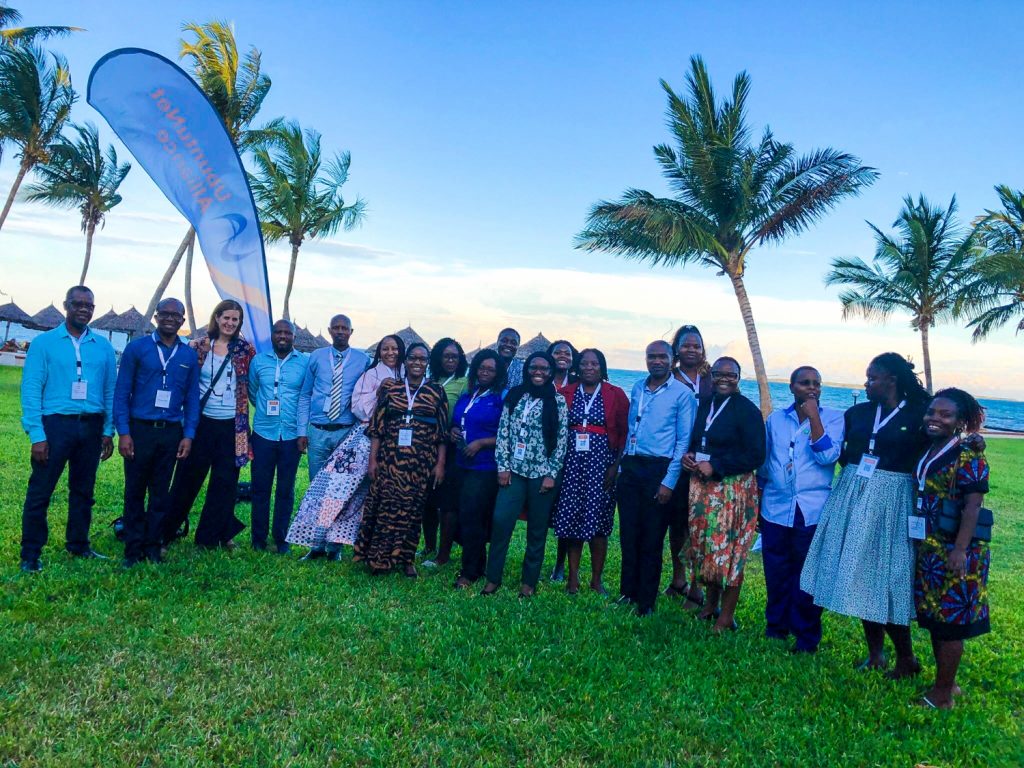Held as a pre-conference event for the UbuntuNet-Connect 2024 conference, the Open Science Workshop offered a unique and enriching experience for librarians from across the UbuntuNet Alliance region. This day-long workshop, facilitated by Dr. Jo Havemann, founder and CEO of Access 2 Perspectives, united librarians from 12 countries within the UbuntuNet Alliance region. The event highlighted the crucial role librarians play in managing and sharing scientific knowledge and equipping them with the tools to drive open science principles within their institutions.
Dr. Jo Havemann, a renowned trainer and consultant in Open Science Communication and Digital Science Project Management, led the workshop. With over a decade of experience that spans NGOs, a science startup, and global organizations like the United Nations Environment Programme, Dr. Havemann brought invaluable insights into the field of open science. Since founding Access 2 Perspectives in 2012, she has focused on strengthening science communication, empowering researchers, and building capacity in scientific management. As co-founder of AfricArXiv, a digital archive hosted by UbuntuNet Alliance and an African-led open scholarly repository, Dr. Havemann has significantly contributed to knowledge sharing across the continent, providing African scientists with a dedicated platform to showcase their research.
The first session introduced participants to the fundamentals of Open Science, covering essential concepts such as Open Access and the FAIR (Findable, Accessible, Interoperable, Reusable) and CARE (Collective Benefit, Authority to Control, Responsibility, and Ethics) principles. Dr. Havemann guided attendees through AfricArXiv’s open access principles and the platform’s role in supporting African researchers to disseminate their work globally. This session provided participants with a solid understanding of Open Science and how African institutions can play a central role in driving accessibility and visibility for regional research.
In the second session, Dr. Havemann delved into the core components of research repositories. Participants explored the importance of Persistent Identifiers such as ORCID (Open Researcher and Contributor ID), ROR (Research Organization Registry), and DOI (Digital Object Identifier), in ensuring long-term access to and recognition of scholarly work. The session also covered content curation, metadata management, and the growing importance of institutional bibliometrics for tracking research outputs and impact. These insights equipped librarians with the knowledge to create and manage repositories that effectively showcase and preserve their institutions’ scholarly contributions.
The final session was a hands-on practical, where participants used their laptops to practice uploading, curating, and deploying scholarly content. Dr. Havemann led exercises focused on evaluating institutional readiness, understanding needs, and developing tailored approaches for integrating open science practices. This hands-on component allowed librarians to apply their learning immediately and build confidence in using digital tools to advance Open Science within their institutions.
The Open Science Workshop emphasized the power of collaboration and capacity building in establishing Africa as a leader in open access and digital science. Dr. Havemann’s expertise and the interactive sessions inspired participants to champion open science practices, creating new pathways for knowledge sharing that benefit the entire region.

